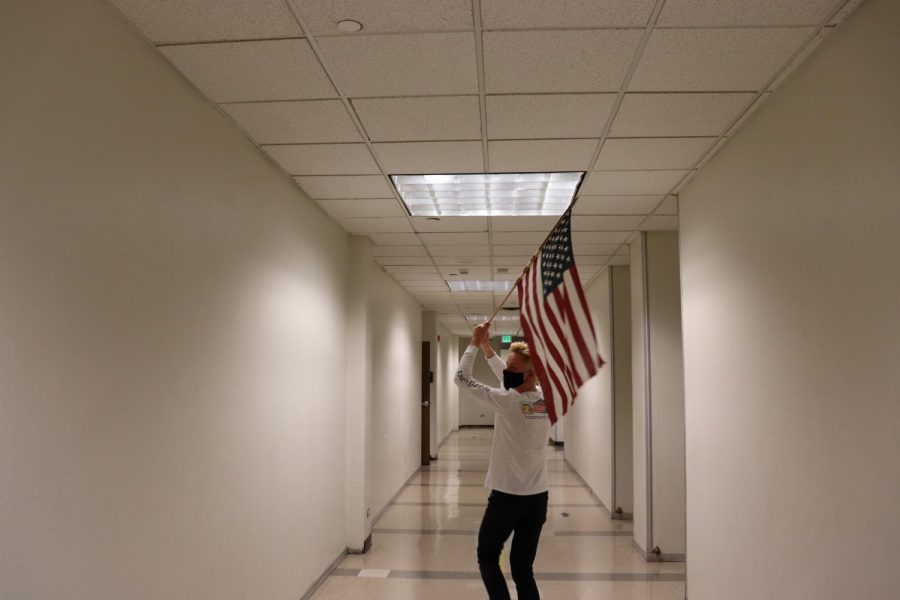Yes, it’s Election Day, but Here’s What Really Matters
As Election Day anticipation rises, voters need to carry their thoughts past the presidency.
On Tuesday, September 29, the first debate of the 2020 election season took place. At least 73.1 million viewers tuned in to see Biden and Trump face-off, and by the end of the 90 minutes portioned, the American public was outraged. Major news outlets cited the debate as “excruciating,” “a disgrace,” some calling it “a dumpster fire” and even “a #*%&show.” The Commission on Presidential Debates took actions to modify any future debates, acknowledging September 29 as a failure.
What caused the debate to flop so spectacularly was evident to anyone who watched it. It could barely be called a “debate.” Rather, it was a display of disrespect and contempt, with enough interruptions by both candidates to make watching it painful and almost impossible. Many voters may regret the scenario that unfolded, wishing for more of an opportunity to understand the candidates’ viewpoints on pressing issues and their intended strategies should they become president next term. But instead of seeing why they should vote for a particular candidate, all that was showcased to the public were two old men arguing with each other about random and unusual topics, leading viewers to question the leadership of one of the largest and most important countries in the world.
But revisiting the September 29 debate highlights one of the most important issues currently facing our country: the lack of a willingness and capacity to listen.
Today is Election Day, and tensions run extremely high. This election has the potential to drastically change the political landscape of this country, as well as the cultural one. Riots threaten the country and many people will feel unsafe, no matter who wins the election. However, the ability to execute positive change extends beyond who sits in the presidential office or even in legislative offices. This power rests in the hands of the American public.
As exhibited by that first debate, hardly any ground can be gained if opposing sides cannot listen to each other. The discourse between Biden and Trump reflected too plainly our national atmosphere. What’s at stake in the very imminent future isn’t just who is elected or what they aim to make of America, but also the future of our country, and maybe even our democracy as a whole. With the Us vs. Them mentality prevalent within much of our country, it seems as though we are able to view those we oppose as almost not quite human, undeserving of being treated with respect, and thus ugly acts from both parties seem more and more excusable.
Yet politics divide people because they are important. Most everyone, regardless of where they sit on the political spectrum, wishes to make the United States better. We all want a government that will solve the problems that our country is facing and act in the interests of the American people. But if our two parties can’t listen to each other, working only on furthering their own agendas and ignoring the other, real change is an unrealistic goal. If national politics are absorbed with fighting the “other side,” the actual aim of politics—to better our country—is rendered useless.
Through the various ways that we distance ourselves from those with whom we disagree, made all the more possible with technology and social media (which The Owl has previously published several stories on), we are contributing to the polarization of our country that has only shown itself to be counterproductive and harmful. Listening and respecting viewpoints other than one’s own can be difficult. Core issues like human rights and climate change are matters that seem to have little grey space or room for compromise, and listening to someone who thinks differently often feels like an aim lacking any sort of merit.
However, the importance of listening to others matters more than anyone may initially think. While it can be difficult to understand why someone would have a different opinion than you, there are countless factors that shape people’s viewpoints and values. Early childhood experiences and upbringing, parent’s political perspectives (and even parenting style), religion and gender are all components in forming one’s political beliefs. Different experiences produce different ways of thinking. However, more often than not, the people we oppose have much more in common with us than first impressions can convey. If we hope for our country to gain more empathy towards others, it’s necessary to be part of that ourselves, seeking to understand our differences rather than extenuating them. If we want to make a substantial difference, we can’t bait ourselves into unproductive arguments that fuel division and hatred. The future of this country depends on our ability to act right now and deal with conflict in a productive fashion to find real solutions.
So, yes, it’s Election Day. But now is already the time to be thinking about the future and working to do our civic duty of bettering this country—and not just by voting. This is a fragile moment in history, and we, as Americans, can’t afford to discount others, devalue their beliefs or intentionally polarize ourselves any further. Instead, we need to listen. We are on the verge of a tipping point towards what I hope to be a brighter future, and anything that we can do to catalyze the change of our world for the better is an undoubtedly worthwhile endeavor.

Clara Fraser is a senior this year and a staff writer for The Owl. Writing is something that Clara has always adored - as well as more artistic pursuits, which she hopes to further incorporate into aspects of her journalism. She looks forward to seeing how The Owl can develop in the coming year - and is excited about the prospect of it being a connecting factor between students during online learning. In her spare time, although usually taken up by wildly procrastinating, Clara enjoys avidly reading The New Yorker, spending time in the outdoor world (best if accompanied by good company or with her dog), and dabbling in various art forms. Throughout quarantine, Clara has developed a love of afternoon...


